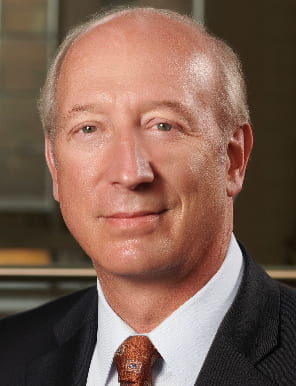Growing Up In Science is a global series dedicated to sharing the personal narratives of scientists, with a focus on the hidden challenges of becoming and being a scientist throughout all stages of one’s career. We’ll feature scientists at WashU via in-person talks at 4pm in McDonnell 928.
Full schedule, Growing Up In Science
If you have questions or are interested in getting involved, please contact Julia Pai.

Official Story
David Holtzman, MD, received his BS (1983) and MD (1985) from Northwestern University followed by a Neurology residency at UCSF from 1985-1989. He did post-doctoral research at UCSF from 1989-1994. There, in addition to his research, he founded a Memory Disorders clinic. He moved to Washington University in 1994 as an assistant professor to both start his own lab as well as to get involved in clinical activities and teaching. He is currently professor of Neurology, scientific director of the Hope Center for Neurological Disorders and associate director of the Knight ADRC.
He was the Chair of the Department of Neurology at Washington University from 2003-2021. Some of his and his lab’s accomplishments include showing, in part, how apoE4 contributes to Alzheimer’s disease (AD), development of a method to measure protein synthesis and clearance in the CNS of animals and humans, development of CSF and plasma biomarkers for AD, demonstration of how synaptic/neuronal activity and sleep affect amyloid-β (Aβ) and tau levels dynamically in vivo acutely and chronically, determined that apoE and TREM2 contribute to the brain’s innate immune response that influences amyloid-induced tau seeding and spreading, as well as tau-mediated neurodegeneration, and development of an anti-apoE antibody that has therapeutic potential. Holtzman co-founded the company C2N Diagnostics in 2007 with colleague Randall Bateman, MD and Life Tech Research. He has received a number of honors including being a recipient of the Potamkin prize from the American Academy of Neurology for research on Alzheimer’s disease, the MetLife award for Alzheimer’s disease research, a MERIT award from the NIA, election to the National Academy of Medicine of the National Academy of Sciences, election to the National Academy of Inventors, an alumni merit award from the Northwestern Feinberg School of Medicine, being appointed to the National Advisory council of the NINDS and NIA, the Chancellor’s award for innovation and entrepreneurship, and the Carl and Gerty Cori award from Washington University, being elected Fellow of the AAAS, being the past president of the American Neurological Association, and being the 2021 recipient of the Rainwater Prize for Outstanding Innovation in Neurodegenerative Research. Holtzman has trained over 70 graduate students, post-doctoral fellows and physician-scientists, many of whom have gone on to successful careers in academia and industry.
Unofficial Story
I was born and raised in St. Louis in West Country (Creve Coeur). I grew up in a family that were all well educated and athletic. I loved playing sports growing up such as baseball, basketball, and tennis and I have continued to be involved in being physically active and in sports throughout my life. I loved biology from when I was a kid and from probably from the age of 12 and onward, I thought I wanted to have a career in medicine – without really knowing much about it. I ended up applying to several accelerated medical programs from high school and ended up entering a program at Northwestern University called the Honors Program in Medical Education (HPME). In this program, I spent 2 years where each semester I had 2 science classes with other HPME students and the other 2 classes were completely elective (I ended up spending time on 2 languages and Art History). Following the 2 years of undergrad, 60 of the HPME class joined 120 new classmates who entered medical school in the standard fashion. During medical school, I ended up enjoying medicine but caught the research bug and realized that I really wanted to give it a shot. I decided however to focus my research training during and after residency as I wanted to do this in the clinical area I was most interested. After medical school and realizing that I was really turned on by Neurology, I did medical internship and Neurology residency at UCSF. During the last 2 years of residency, I spent about 6 months rotating through neuroscience labs (similar to PhD rotations in first year) and ultimately decided to do research training equivalent to a PhD/post-doc in the lab of William Mobley, a pediatric neurologist and developmental neuroscientist. There, I took all the PhD coursework and also spent 9 weeks one summer at Woods Hole doing the neurobiology course which was amazing. Two other major things happened during my time in San Francisco. I met and married my wife Tracy and continued different athletic hobbies including basketball. I organized a medical basketball 2 week tour in China with other UCSF affiliated students, post-docs, and faculty – all former basketball players – and we played 4 games in different cities as well as giving lectures and having medical/research exchanges. While I realized that I was most interested ultimately in studying the mechanisms underlying neurodegeneration and Alzheimer’s disease, my post-doctoral training allowed me to become very familiar with emerging cellular and molecular techniques that uncovered new facets of brain development and how they might be relevant to neurodegeneration. Towards the end of my time at UCSF, the first and most important genetic risk factor for Alzheimer’s disease was discovered, APOE. I was fascinated by this and read everything that was known about APOE at that point and began to work on understanding more about its neurobiology. When I moved to Washington University in 1994, I devoted much of my scientific efforts on this topic which has continued to the present. My clinical interest in neurodegenerative disease has continued throughout my career and I continue to see patients with Alzheimer’s and other disorders in addition to doing research related to this topic.